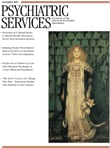Ordinary Heroes: A Novel
This is an artfully written novel about World War II. Scott Turow has written some best-selling novels before writing this one. His father was a field surgeon in Europe during World War II, and Turow has heard many stories from him. After publicly committing on a television interview that his next book would be about World War II, he researched the subject and also received unsolicited help from some sources. He expanded on such stories to write this novel that interweaves real events and places with imaginary people.
Stewart Dubinsky only knew that his father David Dubin—Stewart reverted to the original name his father had Americanized—served in World War II and married a woman rescued from the Balingen concentration camp. David rarely shared much information about his war experiences with his children. Following David's death, Stewart learns of his father's court martial and imprisonment from wartime letters that his father had written to a former fiancée. Much against the wishes of his mother and sister, he embarks on a journey to uncover the truth about his elusive and enigmatic father.
Stewart learns more about his father through military archives, letters, and a memoir his father wrote while in prison that was preserved by the officer who defended him. Stewart learns that his father, a JAG lawyer attached to General Patton's Third Army was dispatched to arrest another officer, Robert Martin, for not following the orders of his commander. He is being arrested despite his extraordinary bravery and knowledge about the warfare needed in France to defeat the enemies. While investigating and following the path of Robert Martin, David gets involved with one of the loyal and elusive comrades of Robert Martin, named Gita Lodz.
David is parachuted into Bastogne as the Battle of the Bulge rages. Even though David's goal was to pursue and arrest Robert Martin, he has to assume the leadership role of a heavily depleted rifle company lacking a leader and supplies. In the middle of the winter he is forced to abandon the search for Robert Martin and fight for his life and his rifle company.
With the reconstruction of events, Stewart is able to appreciate the agonizing choices his father faced in the battlefield, his love life, and the courtroom. This gives Stewart a greater understanding of his father and surprisingly leads him to understand his mother and his own background. Scott Turow orchestrates the tempo of events superbly and beautifully describes the sequences in war, the hair-raising battles, the transformation of roles, and tender, passionate moments amidst the destruction. By also depicting a brave, tender, caring, and resourceful woman in World War II, Turow has clearly articulated the heroic deeds of women in that era.
This is an elegantly written novel describing the calamities of war and transformation of ordinary individuals to heroes under extreme situations.



